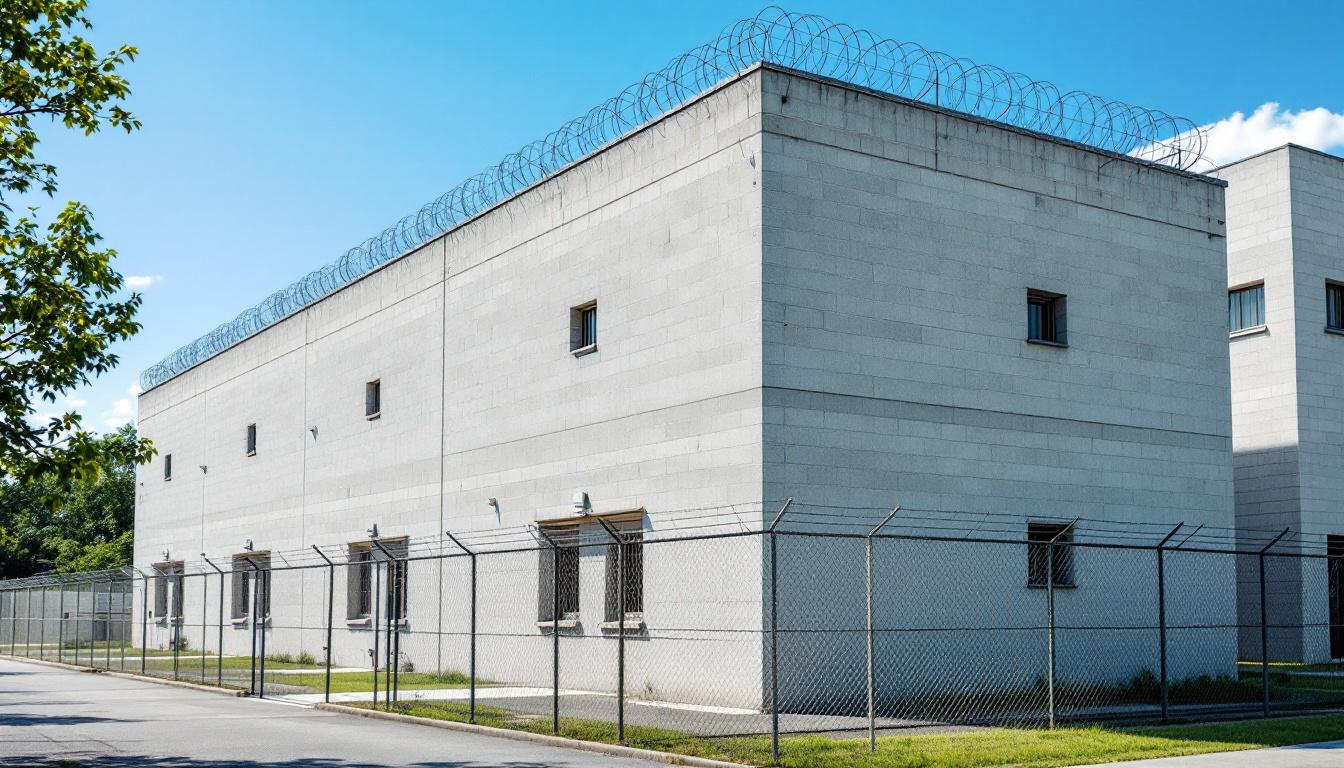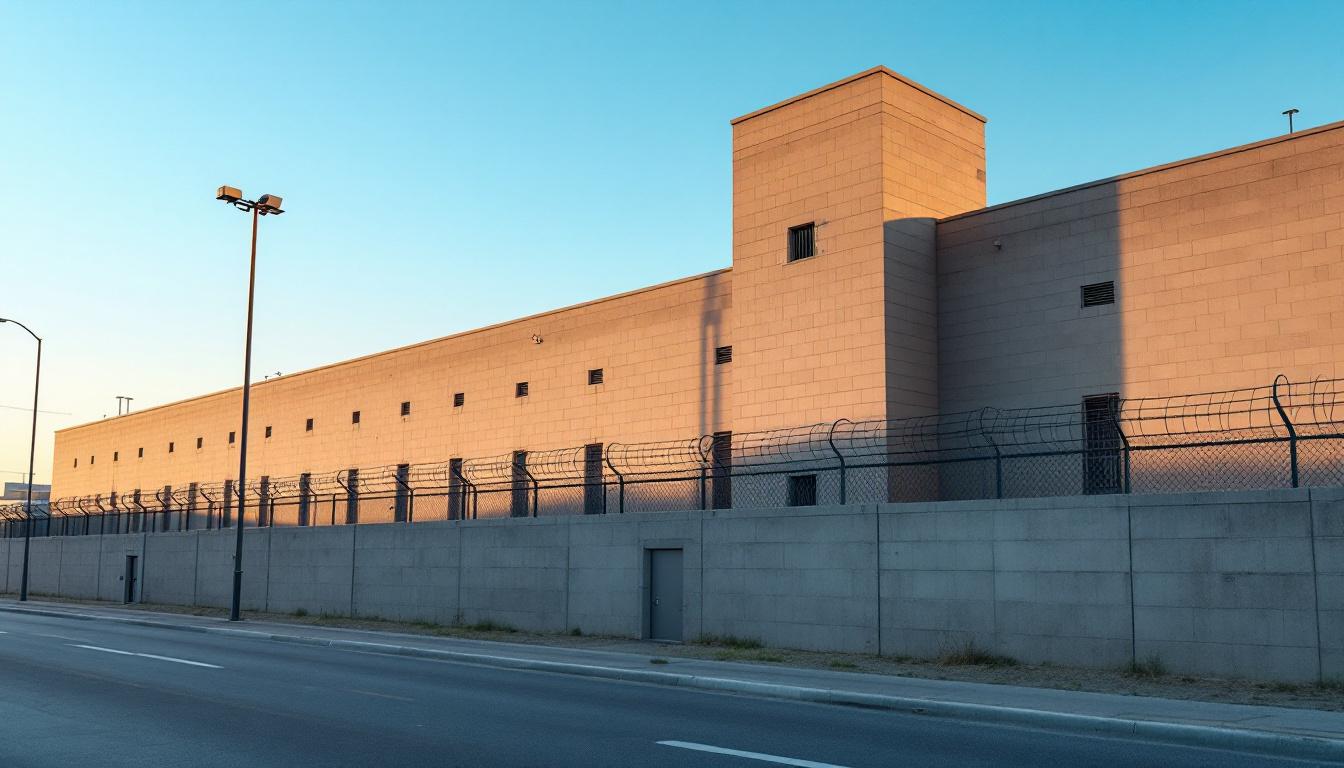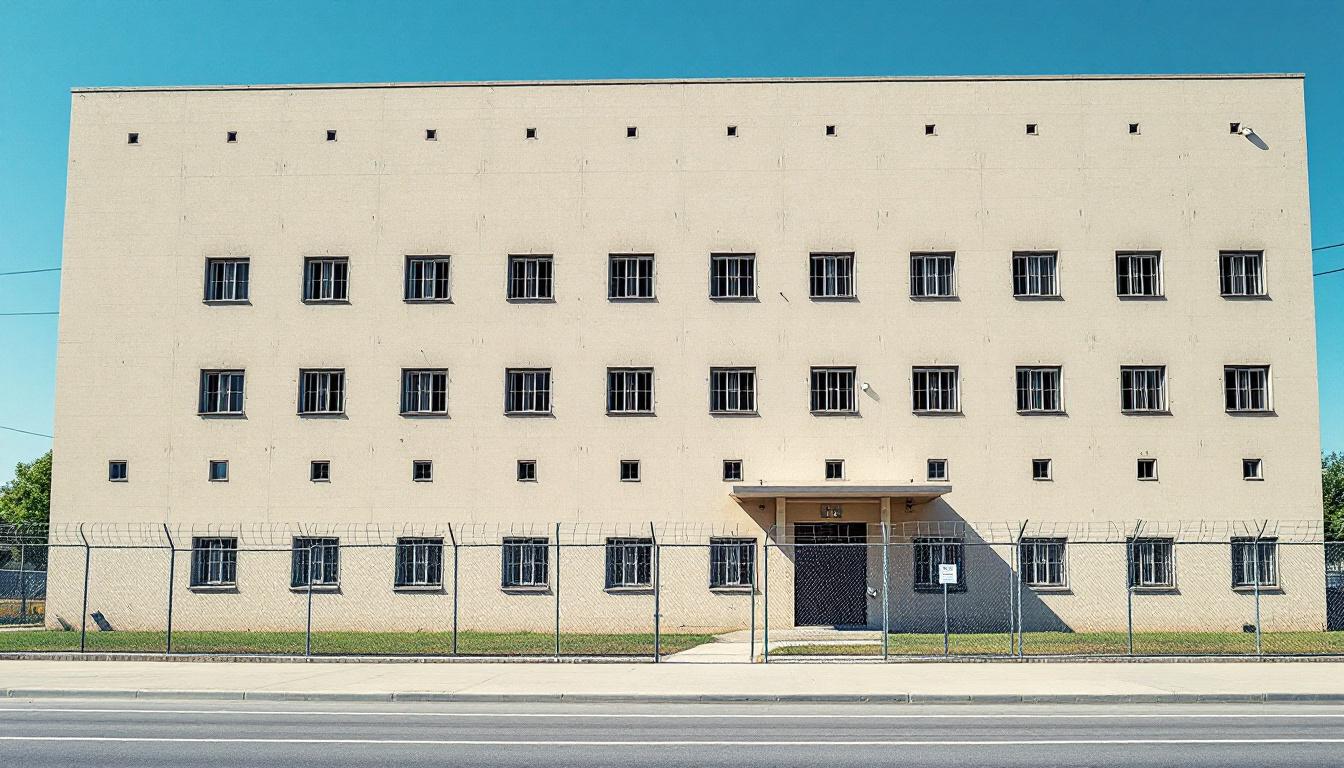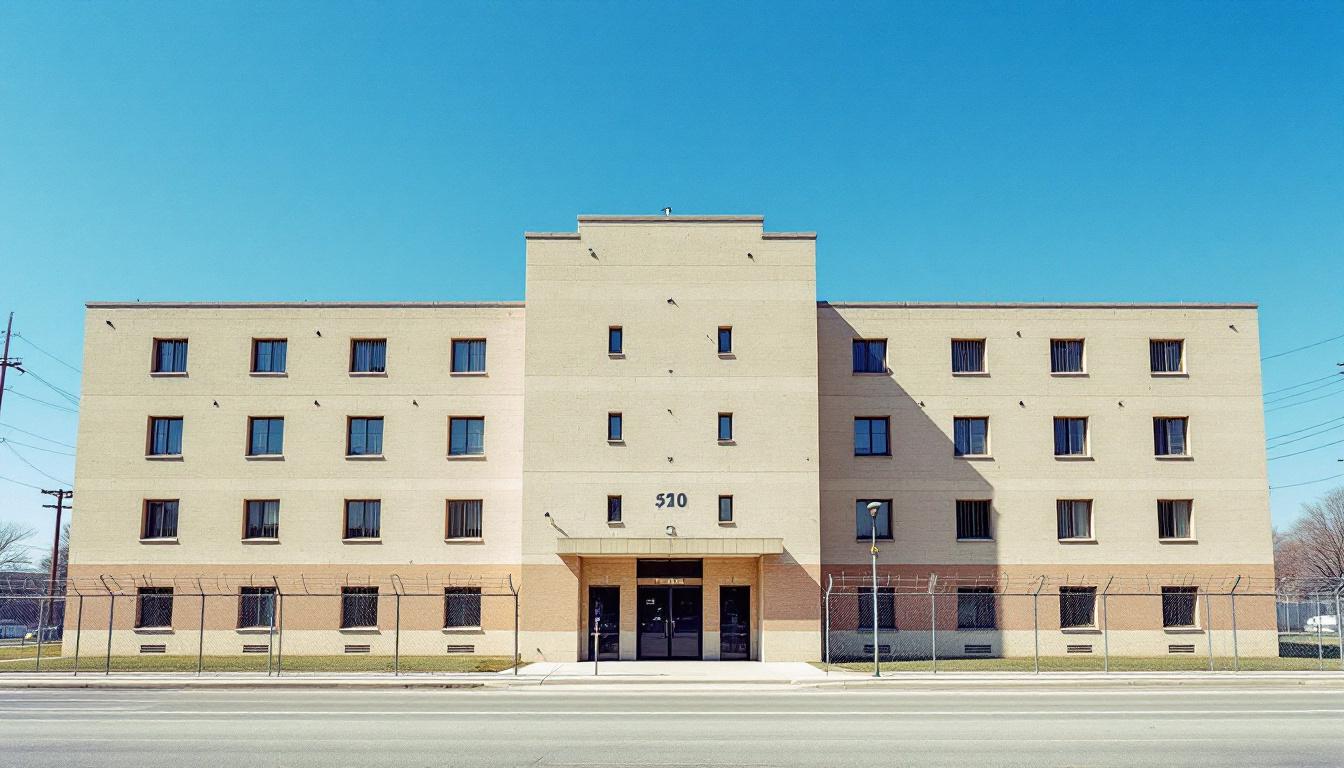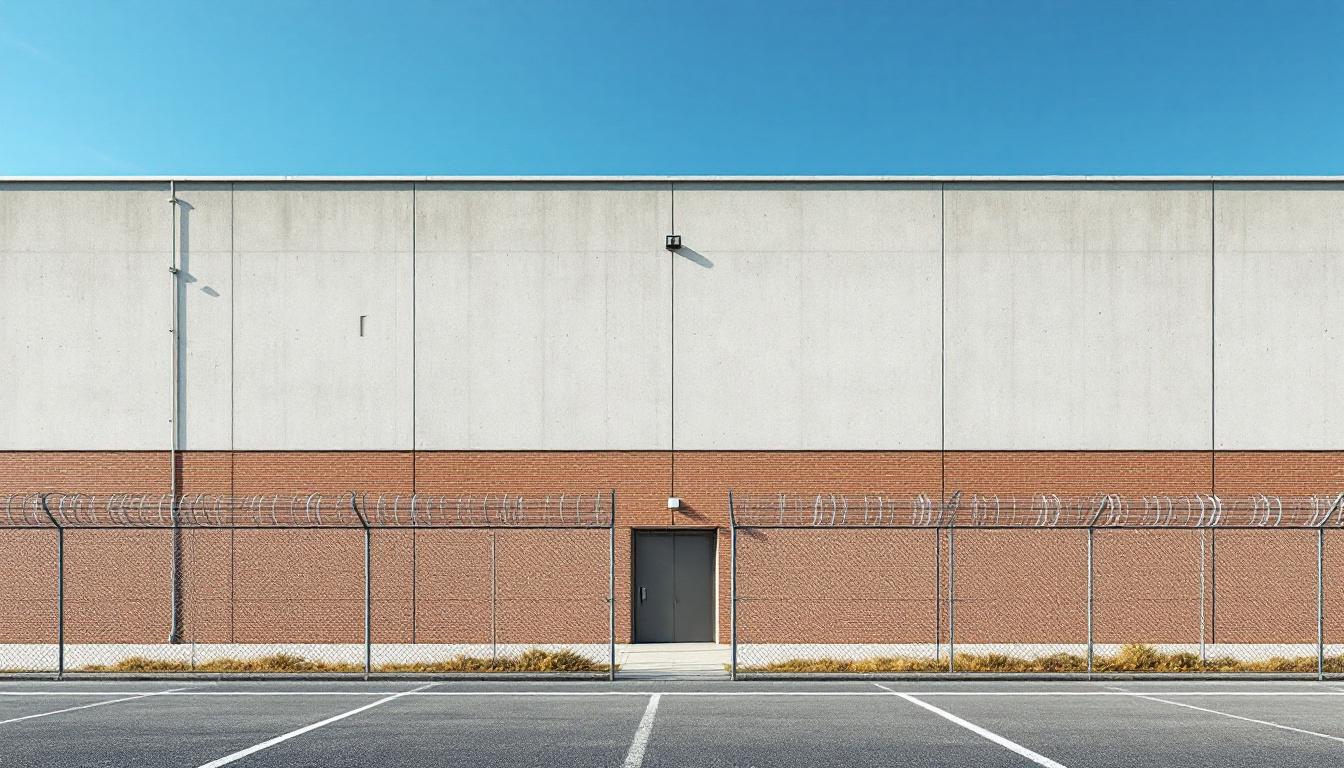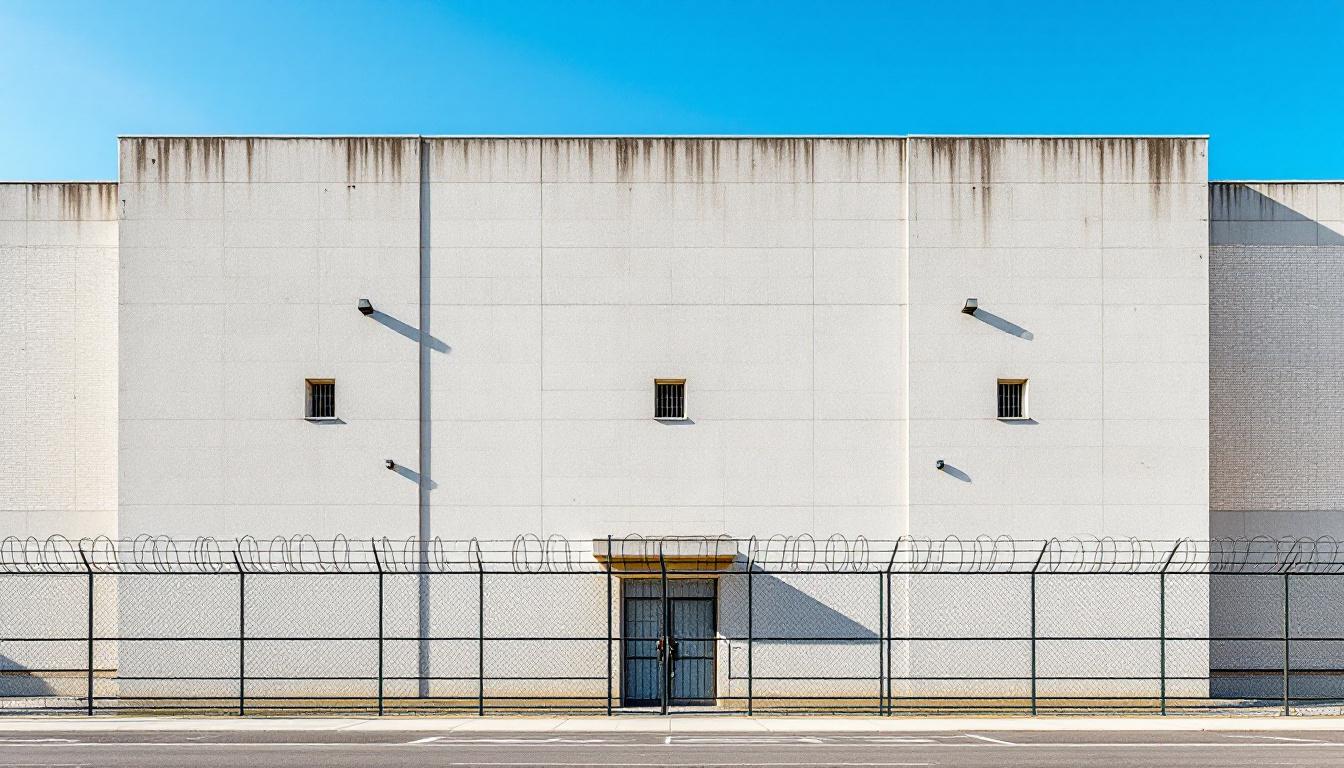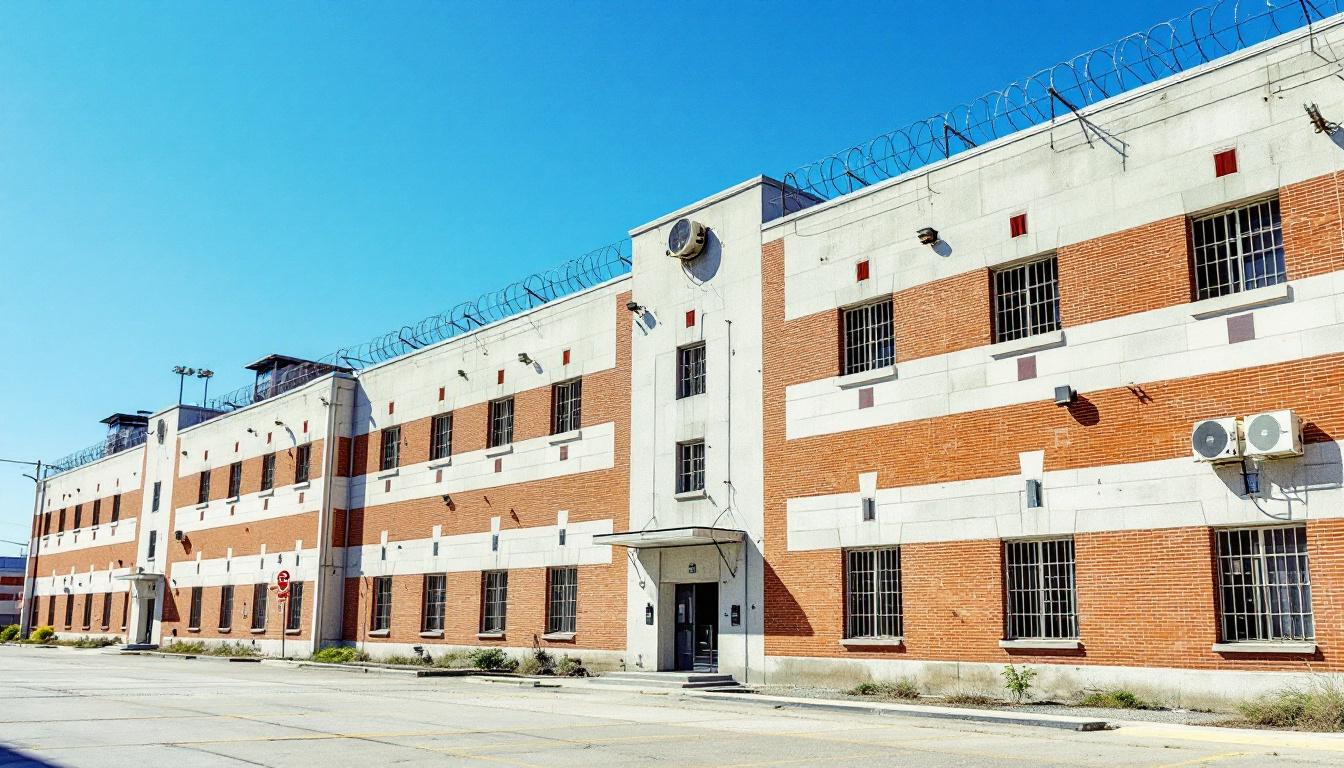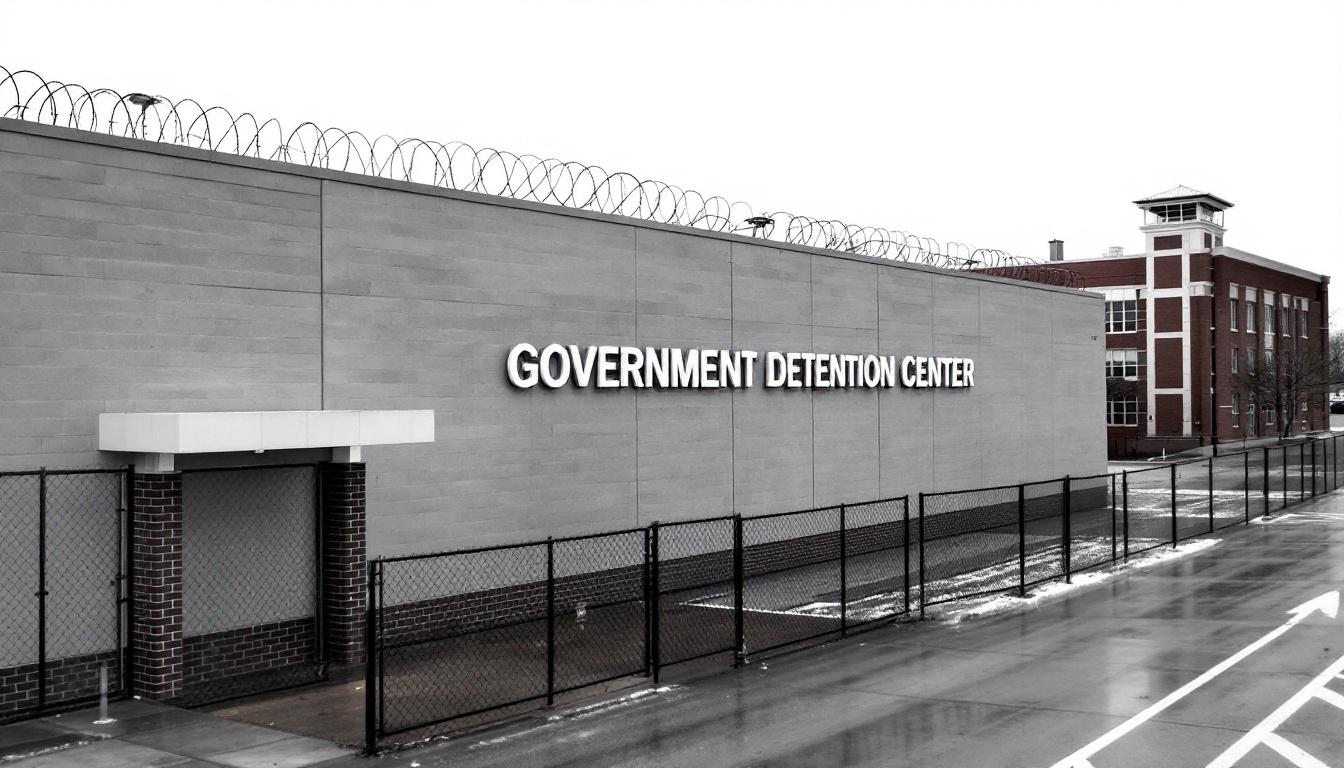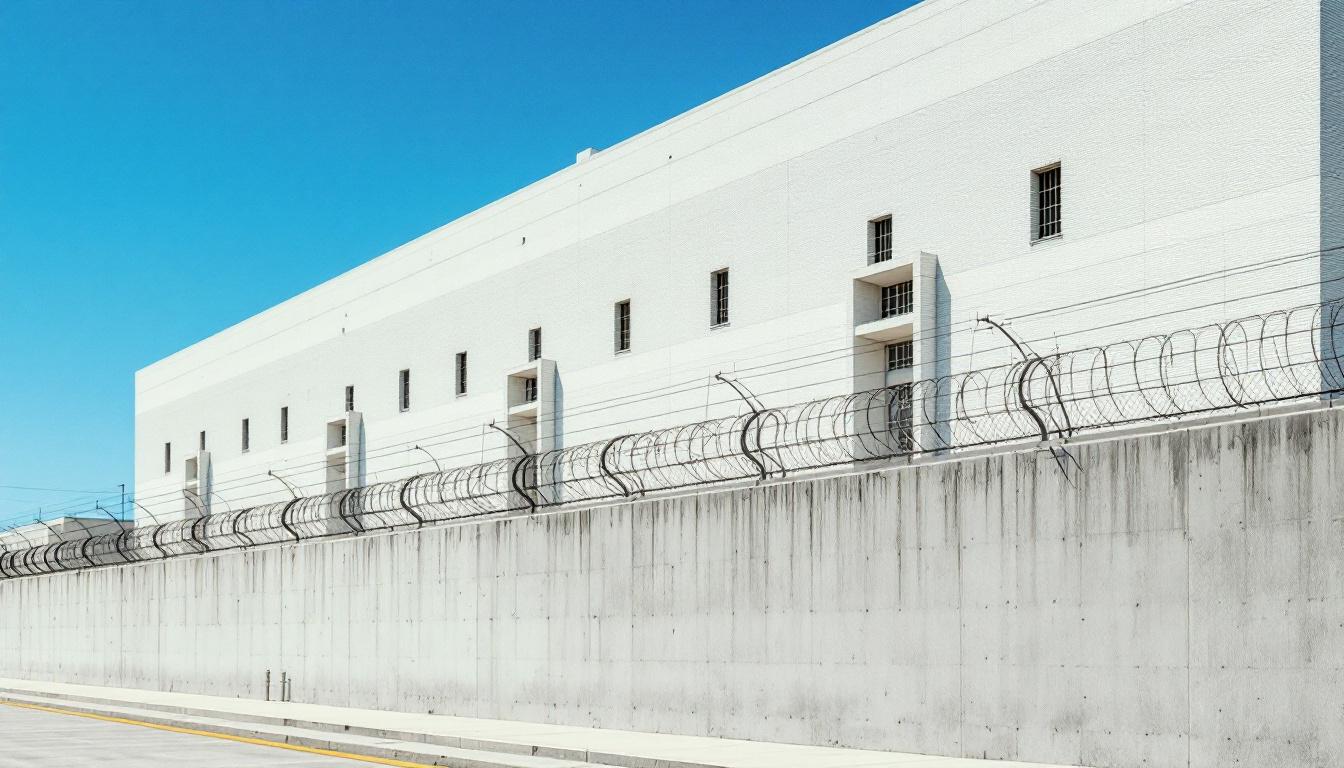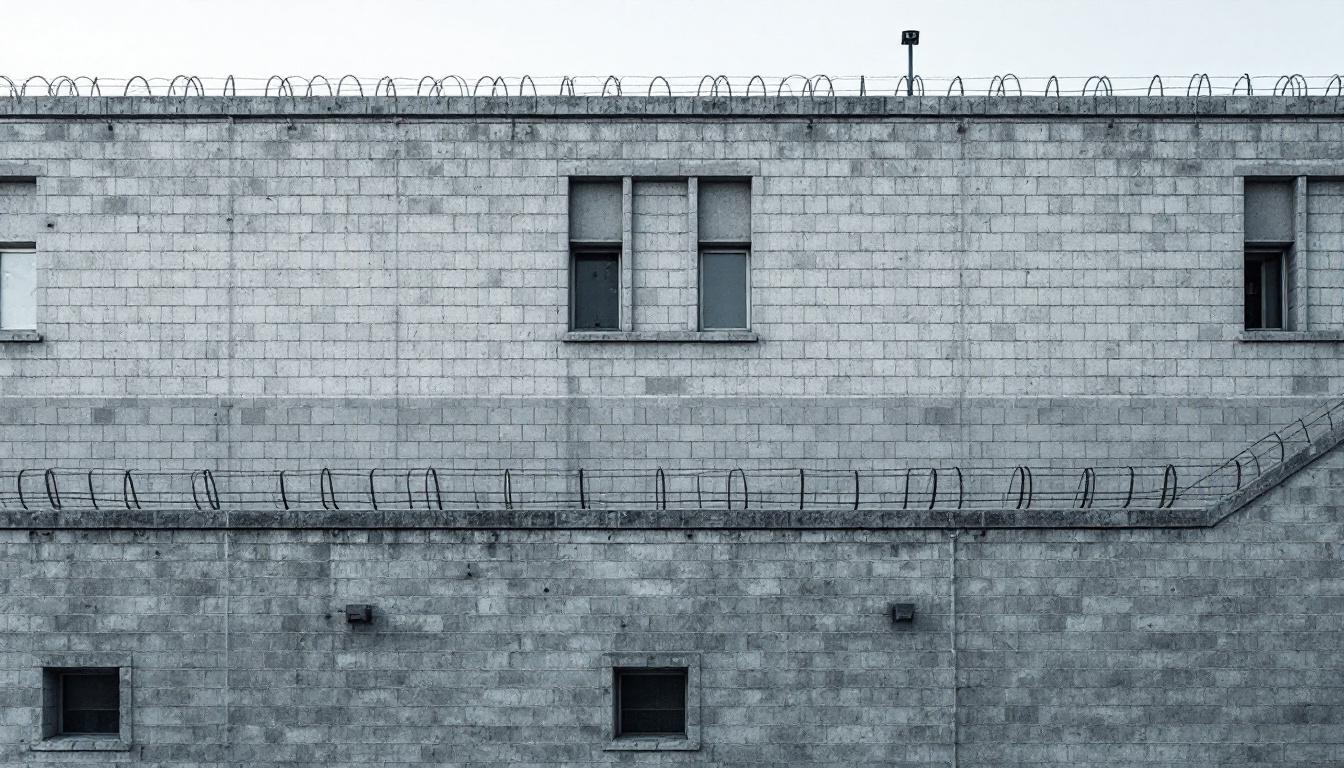
Quick Navigation
How to contact an inmate at Sheboygan County Detention Center
This comprehensive guide will walk you through how to connect with an inmate at Sheboygan County Detention Center. Follow the steps below to find an inmate and send letters and photos:
- Search for the inmate using our search tool below
- Create your account or log in to Penmate
- Write your message (up to 6,000 characters)
- Send instantly - inmates receive printed copies daily
Find an Inmate
Search for an inmate to start communicating today
Tip: You can search by first name, last name, or inmate ID number
To contact a person at Sheboygan County Detention Center start by searching for the person on the official facility website. Perform a search by following these steps:
- Step 1: Enter their first name and last name into the search form and click "Search"
- Step 2: Locate their inmate record
- Step 3: Write down their Inmate ID and any housing information provided
Important! Be sure to enter the person's full name. Nicknames should not be used.
How to Send Messages to Inmates

You can use your phone or computer to send emails, letters, and photos to an inmate. Messages are sent electronically to inmate tablets or kiosks at the facility. If you would like to send a message, start by searching for an inmate at Sheboygan County Detention Center.
Sending Photos and Postcards

A great way to send love and support to a loved one at Sheboygan County Detention Center is to send photos and postcards. It only takes a few minutes to send photos from your phone and it makes a huge difference. You can also mail postcards with words of support and inspiration, or design your own postcard for special moments like birthdays and holidays.
Important! Be sure not to send any explicit photos or they may not be approved by the facility. You can also use a photo printing app like Penmate to make sure your photos are printed at the correct size (4x6 or 3x5) and are mailed according to the rules and regulations of Sheboygan County Detention Center.
Frequently asked questions about Sheboygan County Detention Center
-
How long does it take to deliver a message?
If you're sending an email message your letter is usually delivered within 24-48 hours. For messages sent via mail you should expect delivery within 3-7 days. All messages will need be approved by Sheboygan County Detention Center.
-
How much does it cost to send a message to Sheboygan County Detention Center?
You can send a message free using your phone or mail a message via USPS for the price of a $0.60 stamp and envelope. You can also purchase credits or e-stamps from services starting at $1.99.
-
What services can I use to contact an inmate at Sheboygan County Detention Center?
Penmate
You can use Penmate to send letters and photos to an inmate from your phone. It's an easy way to stay in touch during your loved one's incarceration. Use the inmate locator to find an inmate's location and contact information, then you can send messages within a few minutes.
Securus messaging
Securus may be another option for communicating with an inmate at Sheboygan County Detention Center. You can create a friends and family account and purchase credits to send messages. All messages will be reviewed and must be approved by the facility.
JPay
Some county jails and state prisons may support sending messages with JPay. You must register an account with the system, find your loved one, and purchase stamps to send messages. For some locations you can also attach photos.
Smart Jail Mail
You may also check if Smart Jail Mail is available at Sheboygan County Detention Center. Smart Jail Mail is operated by Smart Communications and has contracted with some state and county jails. After purchasing credits, your messages and photos are sent to the facility, printed out, and then handed out to your loved one.
-
What is the mailing address of Sheboygan County Detention Center?
Mailing address:
Sheboygan County Detention Center
2923 S 31st St
Sheboygan, WI 53081
Phone: (920) 459-1300 -
What are the visiting hours at Sheboygan County Detention Center?
Visiting hours at Sheboygan County Detention Center vary by housing unit and security level. Generally, visits are scheduled on weekends and holidays, with some facilities offering weekday visits. Contact the facility directly at (920) 459-1300 or check their website for the current visiting schedule. Visits typically last 30-60 minutes and must be scheduled in advance.
-
What items are prohibited when sending mail to Sheboygan County Detention Center?
Prohibited items typically include: cash, personal checks, stamps, stickers, glitter, glue, tape, staples, paperclips, polaroid photos, musical or blank greeting cards, hardcover books, magazines with staples, and any items containing metal or electronics. Only send letters on plain white paper with blue or black ink. Photos must be printed on regular photo paper (no Polaroids). Always check with Sheboygan County Detention Center for their specific mail policies.
-
How do I send money to an inmate at Sheboygan County Detention Center?
You can send money to an inmate at Sheboygan County Detention Center through several methods: 1) Online using JPay, Access Corrections, or the facility's approved vendor, 2) Money orders mailed directly to the facility with the inmate's name and ID number, 3) Kiosks located in the facility lobby, or 4) Over the phone using a credit or debit card. Fees vary by method, typically ranging from $2.95 to $11.95 per transaction.
-
Can I schedule a video visit with an inmate at Sheboygan County Detention Center?
Many facilities now offer video visitation as an alternative to in-person visits. At Sheboygan County Detention Center, video visits may be available through services like Penmate, Securus Video Connect, GTL, or ICSolutions. Video visits typically cost $10-20 for 20-30 minutes and must be scheduled in advance. You'll need a computer or smartphone with a camera and reliable internet connection. Contact the facility for their specific video visitation policies and approved vendors.
-
What identification do I need to visit an inmate at Sheboygan County Detention Center?
All visitors must present valid government-issued photo identification such as a driver's license, state ID, passport, or military ID. Minors must be accompanied by a parent or legal guardian who can provide the minor's birth certificate. Some facilities require visitors to be on the inmate's approved visitation list, which may require a background check. Contact Sheboygan County Detention Center for specific ID requirements and visitor approval procedures.
-
How can I find out an inmate's release date?
To find an inmate's release date at Sheboygan County Detention Center, you can: 1) Use the online inmate search tool if available, 2) Call the facility's records department, 3) Contact the inmate's case manager or counselor, or 4) Have the inmate provide this information during a call or visit. For privacy reasons, some facilities only release this information to immediate family members.
Facility Overview
Contact Information
Sheboygan County Detention Center2923 S 31st St
Sheboygan, WI 53081
Phone: (920) 459-1300
Official Website
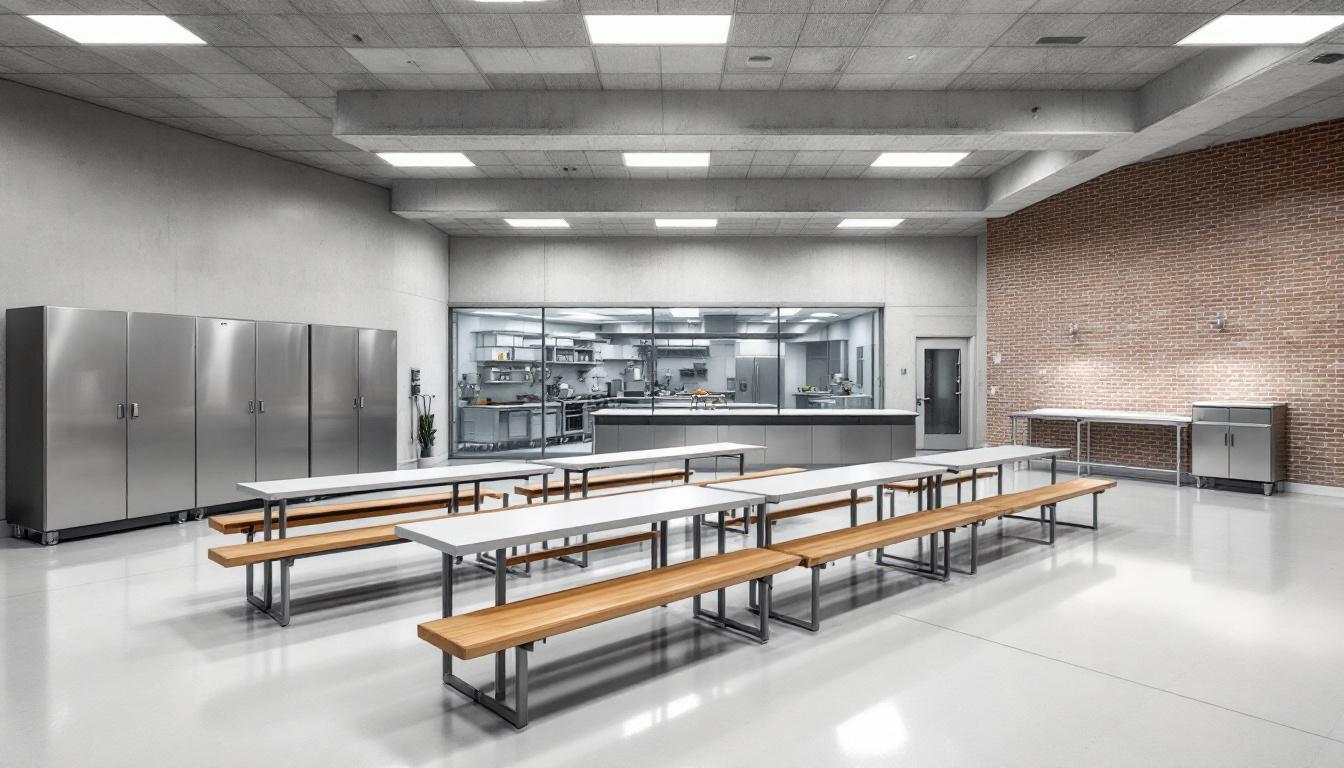
About Sheboygan County Detention Center
Community safety and successful reintegration form the cornerstone of operations at the Sheboygan County Detention Center, WI, where comprehensive support services work alongside secure housing to address the complex needs of individuals within the state's correctional framework. Located in Sheboygan, Wisconsin, this facility typically serves as a regional hub for pretrial detention and sentenced individuals, offering programs that may include educational opportunities, substance abuse counseling, and vocational training designed to prepare inmates for successful community reentry. The detention center generally maintains connections with local service providers and community organizations to facilitate continuity of care and support networks that extend beyond incarceration.
Within Wisconsin's broader correctional system, the Sheboygan County Detention Center often functions as more than a holding facility, typically providing access to mental health services, medical care, and case management resources that address underlying factors contributing to criminal behavior. The facility's approach to inmate services generally emphasizes skill-building and personal development, with programs that may encompass literacy education, anger management, and job readiness training. Through these rehabilitation-focused initiatives, the detention center works to reduce recidivism while supporting individuals in developing the tools necessary for productive community participation upon release, reflecting the midwest region's commitment to evidence-based correctional practices that benefit both offenders and the broader Sheboygan community.
Programs & Services
Personal transformation often begins with structured opportunities that address both immediate needs and long-term aspirations, a philosophy that appears to guide the comprehensive service delivery at Sheboygan County Detention Center. The facility typically emphasizes a multifaceted approach to inmate development, recognizing that meaningful change requires addressing educational deficiencies, developing practical skills, and fostering emotional well-being. Through carefully coordinated services, inmates may access resources designed to build foundational competencies while simultaneously addressing behavioral patterns that contributed to their incarceration.
Educational services often form the cornerstone of personal development initiatives, providing inmates with opportunities to pursue academic advancement through various instructional formats. These services may include basic literacy instruction, high school equivalency preparation, and adult education courses that address fundamental knowledge gaps. In addition to this academic foundation, vocational programs typically offer practical skill development in trades and technical areas, enabling participants to acquire marketable competencies that enhance their employment prospects upon release. Such services often emphasize hands-on learning experiences that build both technical proficiency and workplace readiness skills.
Complementing these educational and vocational opportunities, the facility may provide an array of support services designed to address psychological and social development needs. Cognitive interventions typically focus on helping inmates recognize and modify thought patterns that contribute to problematic behaviors, while peer support groups often create structured environments for sharing experiences and developing interpersonal skills. Physical fitness services, including intramural sports activities, may contribute to overall well-being while teaching teamwork and healthy competition principles. These therapeutic services collectively work to address the complex factors underlying criminal behavior, supporting inmates in developing the personal resources necessary for successful community reintegration.
Daily Life & Visitation
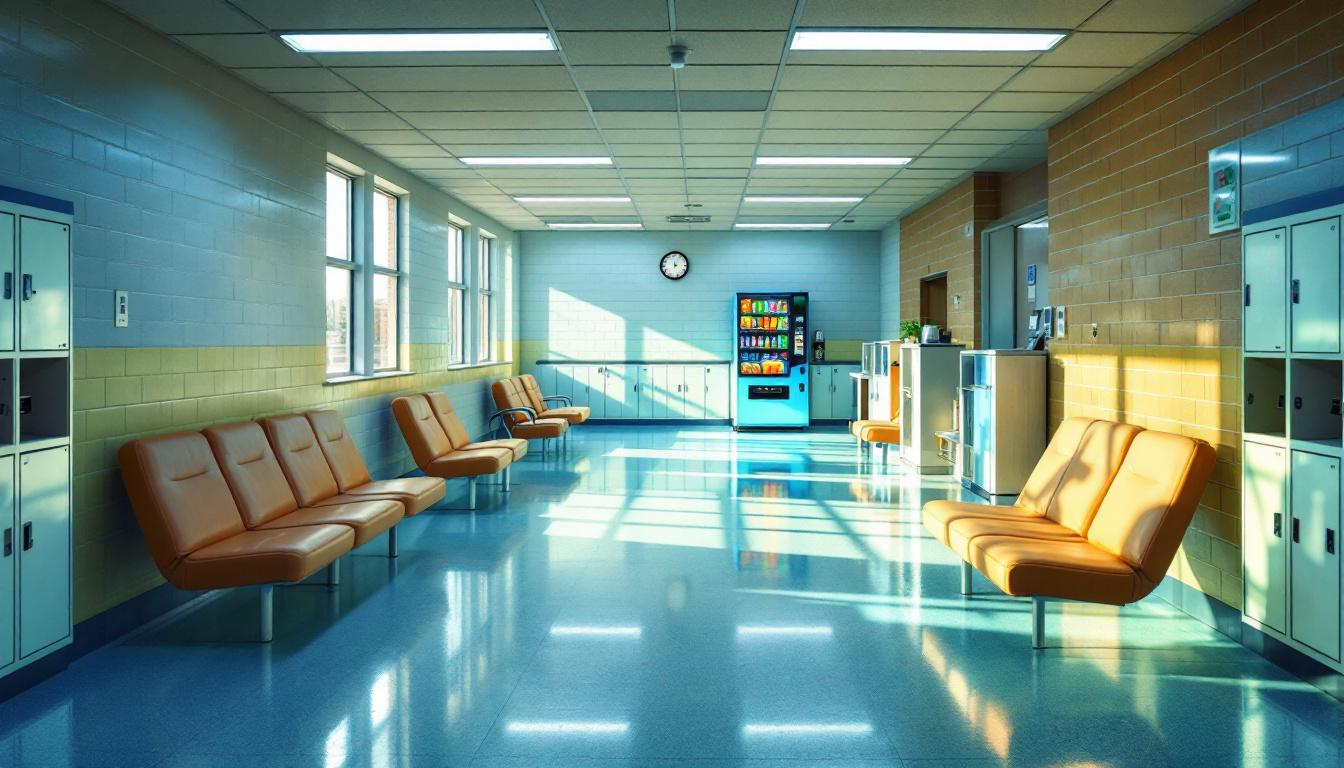
The concrete walls and fluorescent lighting of the housing units create a controlled environment where inmates at Sheboygan County Detention Center must now navigate their daily existence within clearly defined boundaries. Inmates regularly follow a structured schedule that typically begins with early morning counts and meal service, followed by programmed activities that may include educational classes, work assignments, or recreational periods. The facility generally maintains consistent routines that provide inmates with predictable patterns, helping them adapt to the institutional setting while serving their sentences.
Housing accommodations typically consist of shared cells or dormitory-style units where inmates learn to coexist within limited personal space, often developing informal systems for managing their belongings and respecting each other's privacy. The dining arrangements usually involve scheduled meal times in common areas, where inmates gather for breakfast, lunch, and dinner served according to the facility's operational schedule. Despite this structured environment, inmates often find ways to maintain their individuality through approved personal items and by establishing routines within their living spaces that help them cope with the institutional atmosphere.
In addition to this basic framework, the facility may offer various programs and activities that provide inmates with opportunities for personal development and skill building. Work assignments within the facility typically include kitchen duties, maintenance tasks, or cleaning responsibilities that help inmates contribute to the facility's operations while developing work habits. Visitation policies generally allow inmates to maintain connections with family members and friends through scheduled visits, phone calls, and correspondence, which often serve as crucial lifelines that help inmates adapt to their temporary separation from the outside world.
Ready to Connect?
Start communicating with your loved one today
Search for an Inmate
